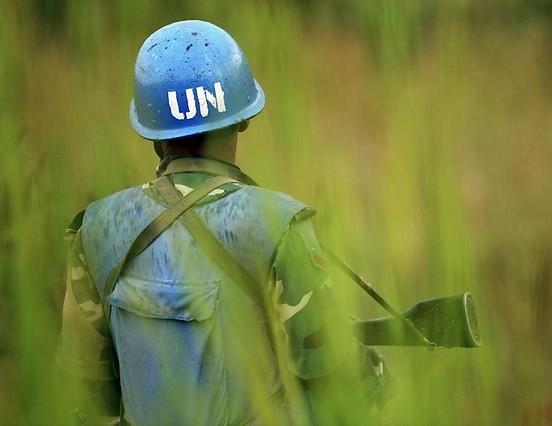Today experts from the World Health Organization (WHO) said the ongoing Ebola outbreak in the Democratic Republic of the Congo (DRC) is being fueled by violent security incidents.
"The outbreak could be stopped … but without a secure environment it's not possible," said Matshidiso Moeti, MBBS, MSc, WHO regional director for Africa, in a teleconference today.
Violent incidents have tripled
The past 5 months have seen 174 attacks on health clinics and health workers, alike, Moeti said. The attacks have caused 5 deaths and 51 documented injuries. When compared with the first 5 months of the outbreak, which began last August, that's a tripling of violence, she said.
Over the weekend, a community health worker near Mbalako was killed. The worker was trained to carry out response efforts in Vusahiro village. On the evening of the attack, three houses in the village were also burned.
The attacks are the sole reason the outbreak is not coming to an end, Moeti said, as each violent attack disrupts surveillance and vaccination efforts.
"The technical means to stop this Ebola outbreak are available, but without access, they can't be employed optimally," Moeti said.
This week David Gressly, MBA, who was appointed last week as the United Nation's Ebola czar, will create a new structure that could "crack the code" on violence, Moeti said. Gressly will arrive in Butembo tomorrow, and one of his key objectives is healthcare worker security.
Over the weekend, the Ebola outbreak in North Kivu and Ituri provinces in the DRC grew by 26 cases, passing the 1,900 case mark to a total of 1,920 cases, according to the DRC yesterday.
Among the 1,920 cases are 1,281 deaths and more than 500 survivors. As of yesterday, the DRC said 252 suspected cases are still under investigation, and 125,467 people had been vaccinated against the virus.
Nosocomial transmission drop; pop-up vaccination
While violent attacks are on the rise, Mike Ryan, MD, the WHO's executive director of emergency programs, highlighted some encouraging figures in the latest epidemiologic updates on the outbreak.
"Six or seven weeks ago, 35% of cases were nosocomial, meaning they contracted Ebola in the healthcare setting," said Ryan. "In the last 21 days that rate has dropped to 16% and in the last week, 5%."
Ryan said the goal is zero nosocomial transmission. He also touted the effectiveness of "pop-up" vaccination clinics and community health teams that are working on a "zone-to-zone" level in active outbreak regions.
"In Katwa, it's almost a cellular, street level of community engagement," Ryan said.
Katwa and Butembo are still the outbreak epicenters, and Ryan said the outbreak remains geographically contained. But even with certain wins, Ryan said he refused to speculate on the outbreak.
"We may still see another wave of cases," he said.
MSF questions surveillance efforts
Late last week, Doctors Without Borders (MSF), which pulled out of the region in February because of violence, issued a statement on the outbreak, suggesting that surveillance is not effective.
"More than 80 percent of new confirmed cases have not been identified as contacts. Additionally, as few as 32 percent of the new confirmed cases were linked back to known contacts. This means that the listing of contacts and surveillance are not effective," the statement said.
"This also mean that while the number of new cases being reported is high, the real number is likely to be even higher."
See also:
May 25 DRC update
May 26 DRC update
May 27 DRC update
May 24 MSF statement















